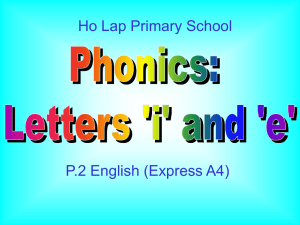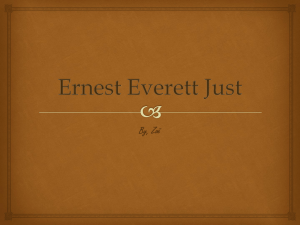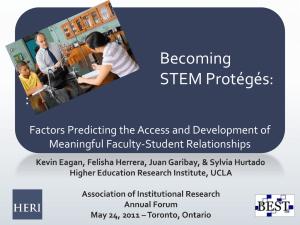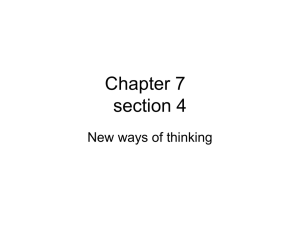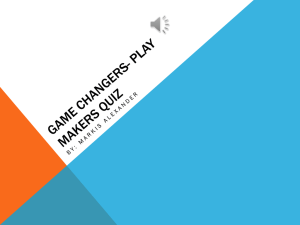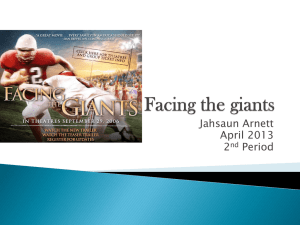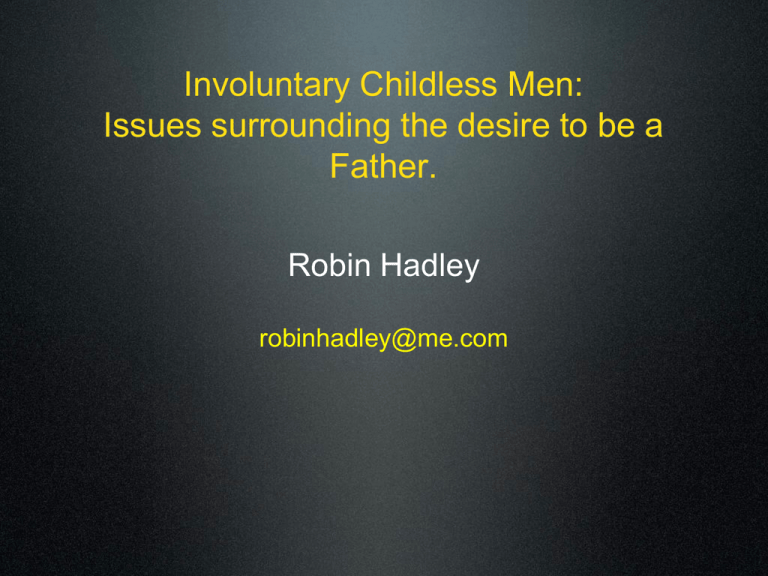
Involuntary Childless Men:
Issues surrounding the desire to be a
Father.
Robin Hadley
robinhadley@me.com
Background
•
•
•
•
Experience
Own
Clients
Reactions: Anger, Sadness, Elation, Depression,
Envy, Yearning, Isolation, Guilt, Acceptance...
• Infertility patients report similar reactions.
What’s out there?
• Not much on the Desire to be a father.
• Most research is based on infertility treatment or
men recently becoming fathers or due to become
fathers.
• Couples, mainly female participants.
• Gender identification of childlessness?
• Attitudes towards infertile men, house-husbands,
single male parents.
Data Collection
•
•
•
•
•
•
•
•
•
Qualitative study.
Grounded Theory Method.
Convenience sample.
Interviews: 10 (semi -structured).
Shortest interview: 34.36 minutes
Longest interview: 73.09 minutes.
Mean interview length: 49.10 minutes.
Transcripts were member checked.
Name have been changed etc to protect
confidentiality.
Participants
•3 x 30’s
•2 x 40’s
•2 x 50’s
•3 x 60’s
• Mean age: 49
• 6 Psychology world
• 4 from real world
• 9 wanted children
• 6 in relationships
• All White Western
Emerging Themes.
• Consequences of
childlessness
• Ideation of Fatherhood
• Relationships (childhood
and adult)
• Socio-economic
• Health
Consequences of Childlessness:
Broodiness.
• “If I didn’t want one so much, I wouldn’t be in the
crap I’m in” (Shane, 33).
• “I really do need to have these children,” (Jeremy, 61)
• “I felt the pain of it, emotionally there was a real gut
feeling that you know, arghh...that I’m not a father of
my own children.” (Ben, 60)
• “I’ve never … never felt broody in my life,” (Mike, 45).
Consequences of Childlessness2:
Social.
• “I felt out of phase with...normality or the
expectations of how, to how life is...” (Jeremy, 61)
• "There was a slight awkwardness...like people were
implying there was something wrong with you” (Ben,
60).
• “Envy, envious - plum envious...I’ve got friends with
children, all my sisters have got children.” (Phil, 51)
• “I’ve never felt challenged...when I’ve said ‘I haven’t
got kids, never wanted kids’.” (Mike, 45)
Consequences of Childlessness 3:
Minding the Gap.
• “I started like feeling there’s a hole there, like,
‘Look what I’m missed out on’.” (Graham, 60+)
• “I don’t think I felt complete as a human being”
(Ben, 60)
• “...grieving for those that were never born...which
is a paradox.” (Jeremy, 61)
• “It is something like a bereavement where you
never get over the situation.” (Ted, 42)
Fatherhood Ideation:
Ideals, concepts, thoughts, feelings.
• “I think it’d be…magic, just magic” (Ernest, 34)
• “...to make up for what I hadn’t experienced ” (Jeremy,
60).
• “You need to have the child to make you blossom as
a person, as a family.” (Shane, 33).
• ‘It was an unknown, an uncharted world for me and,
consequently, one that I avoided.” (Karl, 57)
• “…but I never had any desire to...have any children
of my own.” (Mike, 45)
Ideation 2.
• Responsibility:
• “I don’t know what to do with them...they terrify me,
frankly...” (Mike, 45)
• Skills:
• “It can be difficult and tough…how would have I
coped with the stresses and strains…” (Ben, 60)
• “I don’t have any fear about having kids. No, none at
all” (Ernest, 34)
• Repeat of own childhood:
• “You know I’d look at my son growing up and
remember me relating to my Dad.” (Phil, 51)
Relationships.
• “I thought that means I’ve missed my chance of
having a family...I felt really sad - it caught me by
surprise to feel a sense of loss about that” (Marcus, 33)
• “I can literally blame my two divorces on the fact that
I’ve not had a kid ” (Shane, 33)
• “I can’t perceive that a child could make us happier”
(Mike, 45)
Relationships 2.
• Formative years:
• “Lack of impulse to be a father came from the fact
that I didn’t particularly enjoy being a child” (Karl, 57)
• “My family were great…I had a perfect upbringing”
(Mike, 45)
• Current: “For me it feels like being with the right
person” (Marcus, 33)
• “She said...‘I wish I’d had children with you.’ So not
being a father impinges partly on my relationship with
X. You know, it’s missing between us .” (Phil, 51).
Socio-economic.
• “...in a position where, financially… we wanted to start
trying for having children.” (Jeremy, 61).
• “I think it is an environmental...we move around a lot
for career and stuff. It’s an issue.” (Ernest, 34).
• “We were never really forced into anything...not that
kind of ‘you need to get a job, you need to get
married’.” (Ernest, 34)
• “It comes from my mother...she’s like, ‘Well, when are
we going to have grandchildren’.” (Ernest)
Health
• Mental Health: All had suffered depression,
believing childlessness had been a factor:
8
• “I did have a period of depression...it was part of a
cluster of things which included this sense
of...isolation” (Ben, 60)
• “I was very, very depressed last year, suicidal…”
(Shane, 33).
• Physical Health:
• “I became ill with X ... and this is really why I’m not a
father” (Phil, 51)
• Partners Health: Ethical protocol prevents disclosure.
Discrimination.
• “...it’s almost in my role, I’m still some-bodies child
until I have children...just sometimes a passing
comment, it’s not meant as anything serious...”
(Marcus,33).
• “...so they sort of put a thing on you…somehow
stigmatised. So my brother-in-laws both...keep me at
a distance, sort of despise me...” (Graham, 60+).
• “I don’t really feel as if I’m discriminated against in
any way…” (Ernest, 34).
Implications for Counsellors.
The response to childlessness is unique to individual men
and their cultural and familial experience.
• A ‘complex bereavement’ (Lechner et al, 2006):
“…a sense of loss of not having a family of my
own…but also of a status and position in society
which being a parent gives…” (Ben, 60)
• Gender-role therapy is one possible therapeutic direction
with the use of similar goals to feminist therapy e.g. a
client ‘valuing himself on his own terms, gaining freedom
from sex-role stereotypes… (Nelson-Jones, 2006).
Practitioner’s views
A number of participant’s gave their views on how
childlessness may influence their therapeutic practice:
• One felt that therapists with children had greater
empathy.
• One believed that his childlessness meant he was more
available for the client.
• Another reflected that a response to certain clients
was: “…these are my kids…”
Thank you for listening!
Any questions?
robin.hadley@me.com
Websites
More to Life:
www.infertilitynetworkuk.com/moretolife/
Infertility Network
www.infertilitynetworkuk.com/
Men’s fertility forum:
www.mensfe.net/
Affects of Childlessness
The childless individual is “vulnerable…for social isolation,
loneliness, depression, ill health and increased mortality.”
(Dykstra and Hagestad, 2007).
Lone childless men and lone non-custodial fathers are at
increased risk of death through suicide, addiction, injury,
external violence, poisoning, lung and heart disease. This
was linked this ‘emotional instability and willingness to take
risks’ (Weitoft et al, 2004).
Factors in Childlessness
Timing of events such as divorcing early, employment
type, education level, leaving the parental home, and
marrying late, are factors in childlessness. (Hagestad
and Call, 2007)
A study of childless Australian men found that
attitudes towards family, health, money, women, work
and leisure all factored into male childlessness. (Parr,
2007).
Conclusions
•
•
•
•
•
•
•
•
Relationships early and latter
Mental health & behaviour.
Cultural expectation/anticipation
Fatherhood as a repayment, replacement, reconnection, repeat childhood experience.
Complex inter-connections
Tipping points: timing of events.
Affects on lifestyle: Gambling, alcohol, focus on
work, financial advantage.
Links to work by Dalzell (2005 & 2007), Purewal &
Akker (2007), Throsby & Gill (2004)
References
BRESCOLL, V. L. & UHLMAN, E. L. (2005) Attitudes Toward Traditional and Non-traditional Parents. Psychology of
Women Quarterly, 29, 436-445.
DALZELL, A. (2007) “The expectation has always been that I’ll not have kids” - the narratives of childless gay men.
Bristol, University of Bristol.
DYKSTRA, P. A. & HAGESTAD, G. O. (2007) Roads Less Taken: Developing a Nuanced View of Older Adults Without
Children. Journal of Family Issues, 28, 1275-1310.
HAGESTAD, G. O. & CALL, V. R. A. (2007) Pathways to Childlessness: A Life Course Perspective. Journal of Family
Issues, 28, 1338-1361. KENDIG, H., DYKSTRA, P. A., VAN GAALEN, R. I. & MELKAS, T. (2007) Health of Aging
Parents and Childless Individuals. Journal of Family Issues, 28, 1457-1486.
KOROPECKYJ-COX, T. & PENDELL, G. (2007) The Gender Gap in Attitudes About Childlessness in the United States.
Journal of Marriage and Family, 69, 899-915.
MALIK, S. H. & COULSON, N. (2008) The male experience of infertility: a thematic analysis of an online infertility support
group bulletin board. Journal of Reproductive and Infant Psychology, 26, 18-30.
Nelson-Jones, R. (2006). The Theory and Practice of Counselling and Therapy (4th ed.). London: SAGE Publications
Parr, N. (2007). Which Men remain Childless: The Effects of Early Lifecourse, Family formation, Working Life and
Attitudinal Variables. [Website]. Available from: <melbourneinstitute.com/hilda/Biblio/cp Parr_Childless_Men.pdf >
PERONACE, L. A., BOIVIN, J. & SCHMIDT, L. (2007) Patterns of suffering and social interactions in infertile men: 12
months after unsuccessful treatment. Journal of Psychosomatic Obstetrics & Gynecology, 28, 105 - 114.
PUREWAL, S. & AKKER, O. V. D. (2007) The socio-cultural and biological meaning of parenthood. Journal of
Psychosomatic Obstetrics & Gynecology, 28, 79 - 86.
RINGBÄCK WEITOFT, G., BURSTRÖM, B. & ROSÉN, M. (2004) Premature mortality among lone fathers and childless
men. Social Science & Medicine, 59, 1449-1459.
THROSBY, K. & GILL, R. (2004) "It's Different for Men": Masculinity and IVF. Men and Masculinities, 6, 330-348.
VOGEL, D., WESTER, S., HEESACKER, M. & MADON, S. (2003) Confirming Gender Stereotypes: A Social Role
Perspective. Sex Roles, 48, 519-528.
ZHANG, W. & LIU, G. (2007) Childlessness, Psychological Well-being, and Life Satisfaction Among the Elderly in China.
Journal of Cross-Cultural Gerontology, 22, 185-203.


